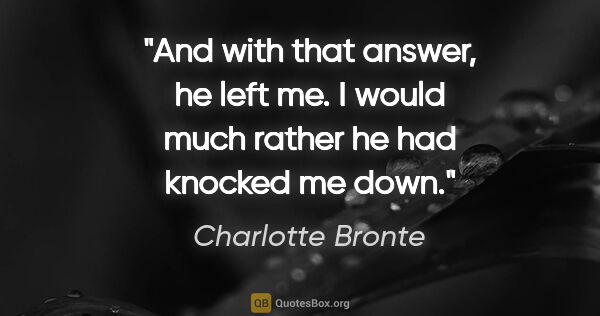Would Quotes (page 639)

Why did colleges make their students take examinations, and why did they give grade? What did a grade really mean? When a student "studied" did he do anything more than read and think-- or was there something special which no one in Walden Two would know about? Why did the professors lecture to the students? Were the students never expected to do anything except answer questions? Was it true that students were made to read books they were not interested in?
B. F. Skinner

Love was everyone's to experience if they opened their hearts, but true love was a rare and sterling thing, damn if it wasn't, a sterling thing that required the intervention of destiny: two hearts fated to be as one, finding each other among the billions of the world. True love, by God, was the Excalibur of emotions, and if you recognized it when you saw it, if you drew that noble, shining blade from the stone, your life would be a grand adventure even if you lived it entirely in one small...
Dean Koontz
If the truth is that after there comes a negatively spiritual life, an eternity of mystical experience, what more misleading way of communicating it could possibly be found than the appearance of a human form which eats boiled fish? Again, on such a view, the body would really be a hallucination. And any theory of hallucination breaks down on the fact (and if it is invention, it is the oldest invention that ever entered the mind of man) that on three separate occasions this hallucination was...
C. S. Lewis
He didn't want her; he wanted me. Well, you know how it is."Dalgliesh did know. This, after all, was the commonest, the most banal of personal tragedies. You loved someone. They didn't love you. Worse still, in defiance of their own best interests and to the destruction of your peace, they loved another. What would half the world's poets and novelists do without this universal tragicomedy?
P. D. James

